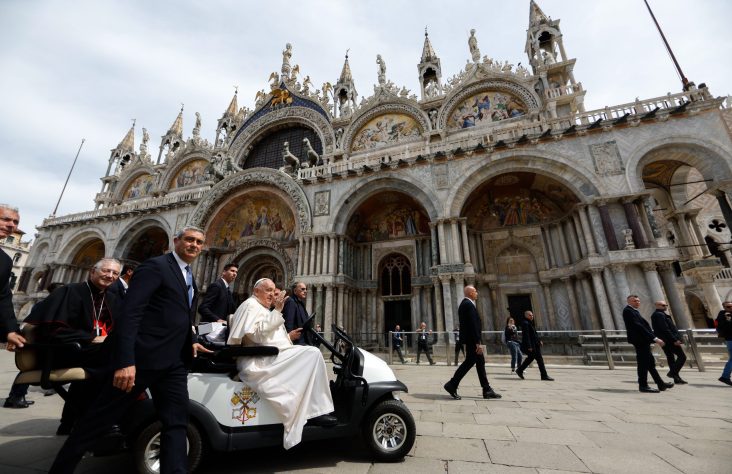March 28, 2013 // Uncategorized
School, church officials praise Indiana court for upholding vouchers
By John Shaughnessy
INDIANAPOLIS (CNS) — Indianapolis archdiocesan officials praised the Indiana Supreme Court’s unanimous decision March 26 that said the state’s school voucher program is constitutional.
“It’s great for our students and our schools, and it’s great for the state of Indiana,” said Harry Plummer, executive director of the archdiocesan Office of Catholic Education. “It’s a major step toward an educational system that truly reinforces that parents are the primary educators of their children.”
The court’s 5-0 decision to uphold the nation’s broadest school voucher program also drew praise from Glenn Tebbe, executive director of the Indiana Catholic Conference, the public policy arm of the state’s bishops.
“I’m just really happy that Indiana’s constitution provides for and allows for parental choice,” Tebbe said. “It complies with the church’s understanding that parents are the first teachers, and have the right and responsibility to educate their children consistent with their values and their child’s educational needs.”
The combination of the Indiana school voucher program and generous donors in the archdiocese helped make it possible for 3,201 students from families in need to attend archdiocesan Catholic schools during the 2012-13 academic year.
Statewide, more than 9,300 students received school vouchers during this school year, more than double the 3,919 students who received vouchers in 2011-12, the first year of the voucher system in Indiana.
The voucher program has had a major impact on Catholic schools that serve low-income families, according to G. Joseph Peters, associate executive director of the archdiocesan Office of Catholic Education. It has also benefited middle-class families with multiple children and it has strengthened diversity in Catholic schools.
“This has allowed a large number of families, many of them Catholic, to be able to choose Catholic education for their children for the first time,” Peters said. “It has also allowed a number of our Hispanic families to choose Catholic education.”
The Indiana Supreme Court ruled on a 2011 lawsuit filed by a group that included the Indiana State Teachers Association. The lawsuit argued that vouchers are unconstitutional.
Indiana Gov. Mike Pence also praised the court’s decision.
“I have long believed that parents should be able to choose where their children go to school, regardless of their income,” Pence noted in a statement. “Now that the Indiana Supreme Court has unanimously upheld this important program, we must continue to find ways to expand educational opportunities for all Indiana families.”
Efforts to expand the state’s school voucher program are already in motion in this year’s session of the Indiana General Assembly.
While the law currently requires children to attend a public school for two semesters before receiving a school voucher, H.B. 1003 would remove that provision. According to the bill, current nonpublic school families and students entering kindergarten could receive a voucher to attend a nonpublic school if their family meets income-related guidelines.
The bill has already been approved by the Indiana House, and was scheduled to be debated in the state Senate March 27.
State-funded vouchers cover the tuition and fees at accredited private schools in Indiana up to a maximum of $4,500 a year in elementary school and even more during high school. The amount of the vouchers could increase if H.B. 1003 becomes law.
– – –
Shaughnessy is assistant editor of The Criterion, archdiocesan newspaper of Indianapolis.
The best news. Delivered to your inbox.
Subscribe to our mailing list today.





